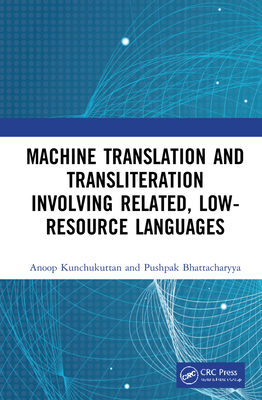Translation, Brains and the Computer: A Neurolinguistic Solution to Ambiguity and Complexity in Machine Translation (Machine Translation: Technologies and Applications)
暫譯: 翻譯、大腦與電腦:神經語言學解決機器翻譯中的歧義與複雜性(機器翻譯:技術與應用)
Bernard Scott
- 出版商: Springer
- 出版日期: 2018-06-15
- 售價: $6,400
- 貴賓價: 9.5 折 $6,080
- 語言: 英文
- 頁數: 241
- 裝訂: Hardcover
- ISBN: 3319766287
- ISBN-13: 9783319766287
海外代購書籍(需單獨結帳)
相關主題
商品描述
This book is about machine translation (MT) and the classic problems associated with this language technology. It examines the causes of these problems and, for linguistic, rule-based systems, attributes the cause to language’s ambiguity and complexity and their interplay in logic-driven processes. For non-linguistic, data-driven systems, the book attributes translation shortcomings to the very lack of linguistics. It then proposes a demonstrable way to relieve these drawbacks in the shape of a working translation model (Logos Model) that has taken its inspiration from key assumptions about psycholinguistic and neurolinguistic function. The book suggests that this brain-based mechanism is effective precisely because it bridges both linguistically driven and data-driven methodologies. It shows how simulation of this cerebral mechanism has freed this one MT model from the all-important, classic problem of complexity when coping with the ambiguities of language. Logos Model accomplishes this by a data-driven process that does not sacrifice linguistic knowledge, but that, like the brain, integrates linguistics within a data-driven process. As a consequence, the book suggests that the brain-like mechanism embedded in this model has the potential to contribute to further advances in machine translation in all its technological instantiations.
商品描述(中文翻譯)
這本書探討機器翻譯(MT)及其相關的經典問題。它分析了這些問題的成因,對於語言學的規則基礎系統,將成因歸因於語言的模糊性和複雜性以及它們在邏輯驅動過程中的相互作用。對於非語言學的數據驅動系統,本書將翻譯的不足歸因於缺乏語言學知識。接著,它提出了一種可證明的方式來緩解這些缺陷,這種方式以一個運作中的翻譯模型(Logos Model)為基礎,該模型的靈感來自於心理語言學和神經語言學功能的關鍵假設。本書建議,這種基於大腦的機制之所以有效,正是因為它橋接了語言驅動和數據驅動的方法論。它展示了如何模擬這一大腦機制,使這一機器翻譯模型擺脫了在處理語言模糊性時所面臨的經典複雜性問題。Logos Model 透過一個數據驅動的過程來實現這一點,該過程並不犧牲語言知識,而是像大腦一樣,將語言學整合於數據驅動的過程中。因此,本書建議,嵌入於這一模型中的類大腦機制有潛力促進機器翻譯在所有技術實現上的進一步發展。































